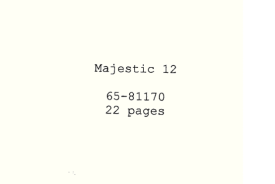Expelled Economics Professor Fired Because Of His Poor Academic Performance, Peking Officials Say (UPDATE)
ByPeking University officials have defended their decision to expel Xia Yeliang, an economics professor around a week ago. Yeliang, a pro-democracy activist, apparently, did not impress them with his teaching performance.
"He just wasn't a good teacher," Sun Qixiang, dean of the school of economics, told NYTimes. "Politics had nothing to do with this decision."
Despite frequent claims by the university officials that the decision was taken solely based on his academic performance, Chinese academicians feel that Yeliang was forced out of his teaching post because of his activism against the single-party rule in China.
The Committee of Concerned Scientists issued a letter condemning the university's decision.
"A university is an open forum for exploring truth, and sharing opinions and academic freedom is the foundation for its existence," a group of professors at National Taiwan University told Taipei Times. "Suppressing that freedom by political means constitutes a major obstacle to exploring truth and destroys the spiritual cornerstone of a university."
Defending the decision, the university officials said that Yeliang was repeatedly asked to improve his teaching method because of its unpopularity with the students. He reportedly amassed more than 340 student complaints since 2006, earning him the worst-ranked teacher ranking among the faculty staff during three evaluations. Plus, he has published only one paper in recent years, an important determinant in the renewal of the contract every three years.
"We had hoped he could improve his teaching and research," Li Qingyun, a professor of economics told the Times. "This is from the bottom of my heart."
The 53-year old professor who has been teaching at the university for a decade has rubbished all the claims made by the officials. He said that he was notified only once about his bottom ranking in teaching evaluations and not three times. And 340 negative evaluations represent only a small portion of students he had taught in a decade. Plus Yeliang asserted that his name had appeared in a number of publications since 2008, including two articles that appear online.
"All such records are in their hands right now, so they can say whatever they want," he said of administrators. "They are lying," the outspoken professor said.
Students are divided over the university's decision of firing the economic professor.
Several current and former students have posted their comments anonymously on Pinglaoshi, a popular teacher evaluation Web site,
"He's a good professor with a conscience," said one comment posted in 2007. "He's brave and knowledgeable," read another.
Valentina Luo, a former student who attended his class on principles of economics, said that the professor spent more time boasting about his experience as a visiting scholar in the United States than teaching about the fundamentals of finance and market economics.
"I don't remember much of his political rants against the government, but he gives the impression that he doesn't prepare for his classes," Luo told the Times. "He just reads the textbook word by word."
"There are many Peking University teachers who are also outspoken about their political views, but Xia is one of those that students don't really like," Sun, another student, told the Times.
Did politics play a role in Yeliang's termination?
Taking into account the government's control over the educational system in the country and the recent crackdown on dissent, Yeliang's supporters claim that it is immature to say that the decision was not politically motivated.
"There are plenty of people who are bad teachers but who don't get terminated," Thomas Cushman, a sociologist at Wellesley College told the Times. "What troubles me is that there is no verifiable information about his so-called bad teaching."
Uncertainty over Yeliang's teaching career
"I hoped some university in China can offer me a position, but so far no single university has dared to accept me," Yeliang told South China Morning Post. "If I [go and] stay overseas for two years, then maybe they will."
Yeliang began his career at the university in 2000 and joined the economics faculty in July 2002. He is scheduled to teach at the University until January when his contract ends.
© 2026 University Herald, All rights reserved. Do not reproduce without permission.








